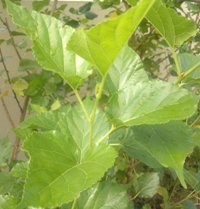Herb Botanical
- Ginko Leaf (Ginkgo biloba)
- Safe to consume when used appropriately, possible concern with ingestion of blood thinning medications but inconclusive.
- Guarana Seed
- Not recommended for excessive or long-term use.
- Hawthorn Berry, Leaf, Flower (Crataegus laecigata/spp)
- Safe to consume when used appropriately. May have a potentiating effect with digitalis which may necessitate a smaller dosage of digitalis. Consult a physician when symptoms continue unchanged for longer than 6 weeks or in cases of swelling of the legs.
- Melissa Herb (Lemon Balm) – Melissa officinalis
- Safe to consume when used appropriately.
- Oat Grass Seed Extract (Avena sativa)
- Safe to consume when used appropriately.
- Scullcap Herb (Scutellaria lateriflora)
- Safe to consume when used appropriately.
- Valerian Root (Valeriana offinalis)
- Safe to consume when used appropriately.
Essential Oil Botanical
- Basil (Sweet) – Ocinum basilicum
- Not for small children. Avoid sensitive skin. Possible carcinogenic, hepatoxic.
- Lavender (Lavender)
- Tested non-toxic at low levels.
- Orange (Citrus sinensis)
- Tested non-toxic at low levels. Potentially sensitizing, phototoxic.
- Rosemary (Cineole) – Rosmarinus officinalis
- Should not used when pregnant, with epilepsy or by small children. Possible neurotoxic.
Chinese herbs also show positive effects on ADHD symptoms. A study comparing a Chinese herbal formula versus Ritalin showed the same benefits with fewer side effects.
Use of herbal remedies for ADHD shows beneficial results without the risk of abuse found in pharmacological medications and usually with significantly less side effects. Herbalists may recommend other supplementation and dietary changes in addition to herbs in the treatment of ADHD.
 |
Search Best Treatment for ADHD Herbs in Google |
